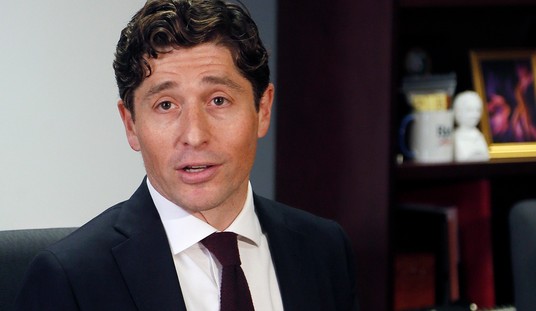The Chicago Teachers Union voted to return to their jobs, hours before a Chicago judge would have entertained a motion to issue an injunction ordering them to return. They claimed victory over Mayor Rahm Emanuel, although the nation’s highest-paid urban educators didn’t get the whopping 30% increase in base pay they demanded. In fact, they didn’t even get the fixed 16% raise across four years that Chicago Public Schools offered them before the strike:
The contract would give teachers base salary raises of 3 percent this year and 2 percent in each of the following two years. They could receive another 3 percent raise if both sides agree to a fourth year in the contract.
Those raises are in addition to other salary bumps for experience and pursuing a graduate degree that would push the overall average pay raise for teachers to 17.6 percent over four years, according to CPS. The district did not offer an average raise estimate for three years.
Maybe I’m a little rusty on my math, but that sounds a lot like the CTU bargained a 16% guaranteed increase over 4 years into a 7.2% increase (with compounding) over 3 years, with an option to make it 10.4% overall in a fourth year. Granted, teachers can work toward bigger increases, but those are based on merit and accomplishment rather than guaranteed.
Did the CTU agree to merit pay, one of the original flash points of the strike? Karen Lewis, the CTU leader, says no:
Though the union did not achieve the 30 percent base raise it initially sought, CTU President Karen Lewis claimed several victories.
She argued that the union had successfully rejected Mayor Rahm Emanuel’s attempts to institute merit pay, fought off more stringent requirements in a new teacher evaluation system and secured a recall policy for top-performing teachers who are laid off because of school closings.
Something doesn’t add up, pun intended. The pay incentives are based on merit and accomplishment, but Lewis says she defeated merit pay, while delivering a lower guaranteed increase schedule than was on the table before the strike.
Well, did Emanuel come away feeling like a loser? Not exactly:
In the tentative agreement, Emanuel solidified his No. 1 reform objective of lengthening what had been one of the nation’s shortest school days and year.
The mayor also managed to secure a deal that gives teachers smaller raises than they had received under their previous five-year contract, maintains principals’ right to determine which teachers will be hired and institutes, for the first time, a teacher evaluation system set out by state law that takes into account student performance.
Sooooo …. CTU took a less-lucrative raise schedule, accepted an incentive pay system that barely outstrips the guaranteed raise system they were first offered, have to accept the longer school hours that angered them enough to authorize the strike in the spring, and must work with outcome-based evaluations? Yes, that decision to walk out looks terrific in retrospect, CTU rank and file. Great leadership you elected to represent you!
Just remember, these decisions come from the people educating children in Chicago, everywhere except charter schools … which have only gotten more popular during the strike. Expect that trend to continue.








Join the conversation as a VIP Member